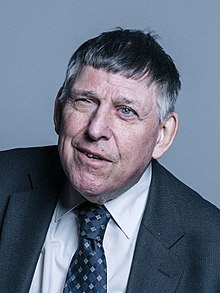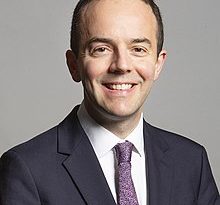Colin Low – 2022 Speech on the Growth Plan (Baron Low of Dalston)
The speech made by Colin Low, Baron Low of Dalston, in the House of Lords on 10 October 2022.
My Lords, the economy is not in a good state. The Budget and the so-called growth plan are not about to make things any better.
The Prime Minister and the Chancellor would like us to believe that all our economic woes are the result of Putin’s war and the resultant energy price increases. They want us to focus on the energy-capping element of their economic strategy, but the truth is that, before Putin, there were already worrying signs of output constraints, labour market distortions and inflationary pressures resulting from the disruptive effects of both Brexit and the pandemic.
Now, inflation is at almost 10%, output is still below its pre-pandemic level and wages for many, especially those in the public sector, are lagging well behind prices. Meanwhile, public services are in urgent need of resources, not just to deal with the enormous backlog built up during the pandemic but to rebuild resilience following a decade of underfunding of health, social care, education and local authority spending. Not only that but the lack of healthcare resources is almost certainly having a significant, negative impact on the labour market and, consequently, economic output.
In these circumstances, the Budget on 24 September should have confined itself to introducing the new energy price caps, with a promise of properly considered tax and spending decisions—and funding arrangements to match—to come later in the year. Instead, the Chancellor succeeded in spooking the financial markets with the promise of massive unfunded tax cuts, thereby weakening the pound and, more importantly, pushing up the cost of government debt and raising interest rates more quickly than would otherwise have been needed.
With mortgage rates already increasing to over 6%, mortgage payments as a proportion of household disposable income will be at their highest since 1989, just before the crash in house prices of the early 1990s—and this on top of record energy bills. No wonder consumer confidence and business confidence are weak and there is every prospect of stagnation, perhaps even recession, in the coming months. What is the Government’s response? It is tax cuts for the rich, benefit cuts for the poor and the prospect of a new round of austerity in public sector spending, all dressed up as a plan for growth.
How, then, are we to explain the Chancellor resorting to swingeing tax cuts, worth £43 billion at the latest count, in conditions of high—and rising—interest rates and overstretched, underfunded public services? The Government’s position, at least in public, is that tax cuts will be paid for by increased economic growth, which they will also help to generate in combination with cutting red tape and easing planning regulations. The problem, however, is that almost no one—certainly not the markets—believes that these things are likely to happen. There is no evidence from either comparison across countries or past experience that lower taxes are associated with higher productivity growth and, hence, higher trend rates of growth in output. Of course, in the right circumstances, cutting taxes can stimulate demand and so raise output in the short run, but that works only when inflation is low and there is plenty of spare capacity, which is far from the case at the moment.
As for deregulation, easing planning regulations may help a little if it is not thwarted by local opposition, including from Tory interests. However, the perennial and often counterproductive war on red tape and gimmicks such as investment zones will have a marginal impact at best.
If we cannot rely on increased growth to fund the Chancellor’s tax cuts, there is only one option for avoiding an unsustainable spiral of increasing government debt: large-scale cuts in government spending. Perhaps it is not unduly cynical to suggest that shrinking the state may have been a secondary—even primary, in some quarters—objective of the tax-cutting strategy. That would certainly be consistent with the decision to sidestep the scrutiny of the OBR when the tax cuts were announced. In any case—
Baroness Bloomfield of Hinton Waldrist (Con)
The noble Lord has had quite a lot of latitude with the advisory speaking time but is now significantly over. Perhaps he could think about drawing his comments to a close.
Lord Low of Dalston (CB)
I am on my last sentence.
In any case, if the tax cuts are to be sustained, substantial cuts in government spending are on the way. The paradox is that this is the opposite of what is required for a credible growth plan.


